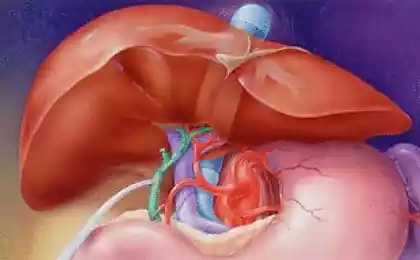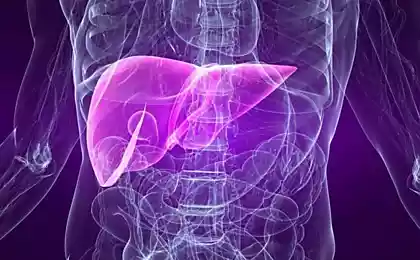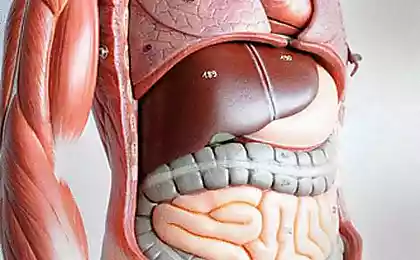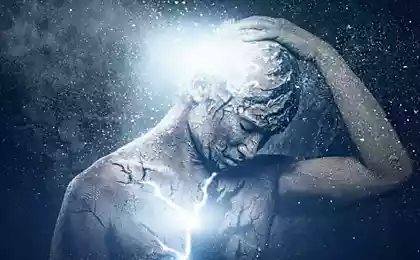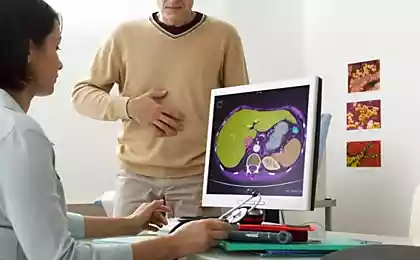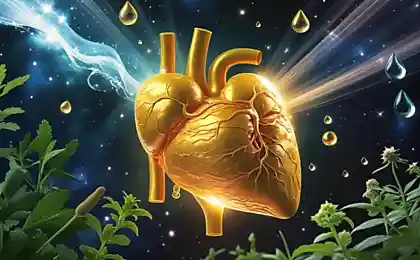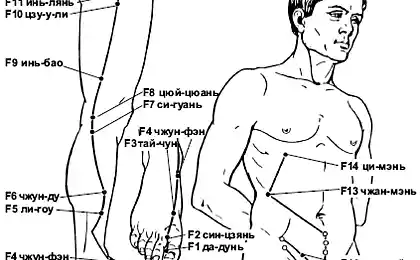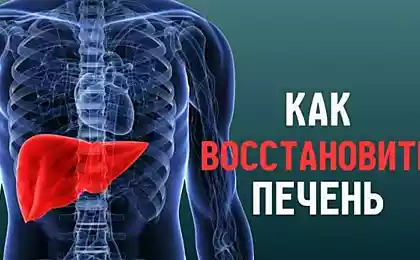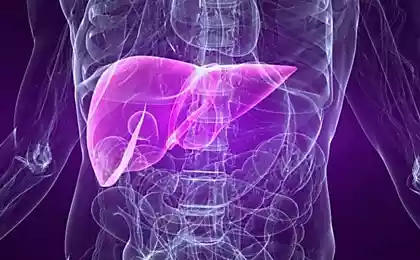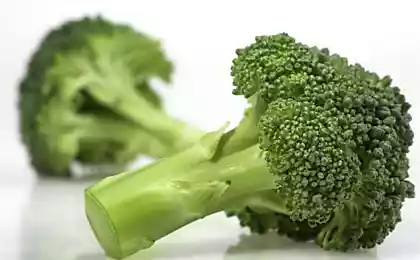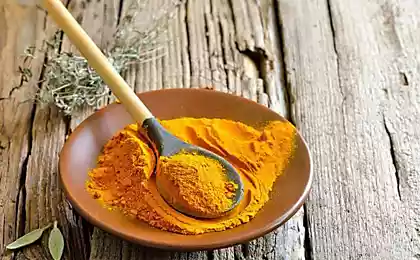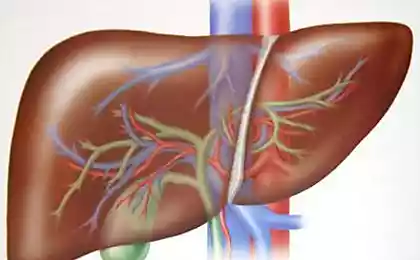179
9 signals that indicate that toxins have accumulated in the liver
The liver is one of the most important organs of our body, the second most important after the skin, which removes toxins as well as other waste products from the body.
For days, the liver filters our blood, removing toxins from it, and it is also responsible for the synthesis of carbohydrates and lipids.
In addition, our liver is a storehouse of vitamins A, D, E and K, which are necessary for our good physical and emotional state.
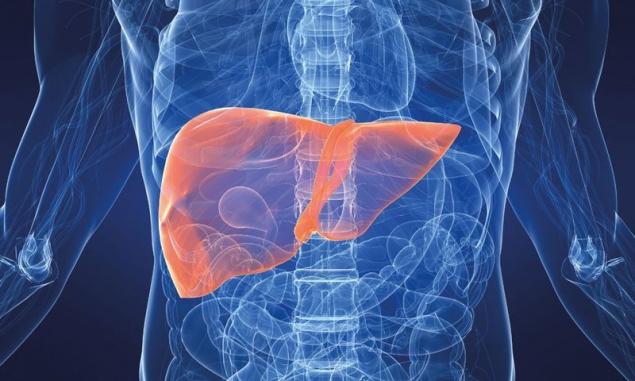
Nevertheless, despite the fact that this organ is responsible for cleansing the body and has the ability to self-cleanse, its functions are violated from overload and this does not allow the liver to work in the optimal mode.
Serious liver disease does not develop suddenly. Even before it’s too late, we may notice some signs that it has too many toxins.
Dangerous signs that you need to pay attention to 1. Toxins cause changes in urine color Changes in the color and smell of urine and feces are an important indicator of internal health problems.
While they may be caused by a genitourinary or intestinal infection, it can also be a key signal for timely detection of liver problems.
Urine tends to have a pale yellow color when our body does not lack fluid, however, because of jaundice, it can have a darker color.
In addition, the accumulation of toxins in the liver can cause the color of the stool to become paler or, conversely, almost black.
2. Spasms and inflammation in the stomach Despite the fact that it is difficult to suspect that abdominal spasms and swelling are associated with liver problems, you should not rule out this possibility.
Frequent spasms indicate that the liver is not working properly and cannot rid itself of toxins.
In addition, there is permanent inflammation, which is usually accompanied by gases.
3. Skin sensitivity The accumulation of waste in the liver almost always manifests itself in the condition of our skin. Unexplained itching, irritation and dryness can tell us that the liver is intoxicated.
It is likely that these symptoms can be muted using a moisturizer, but since the problem is internal, they will reappear.
4. Heartburn. Heartburn is associated with diseases that affect our digestive system and liver.
Despite the fact that it is often caused by malnutrition or certain substances that are contained in food, sometimes heartburn also indicates the accumulation of toxins.

5. diarrhea Diarrhea is a reaction to many disorders, including those that affect the condition of the liver and gallbladder.
When diarrhea appears frequently and for no apparent reason, it is likely that this liver signals that it needs urgent detoxification.
6. Feeling tired Chronic fatigue is a problem that, in addition to fatigue itself, causes weakness, lethargy and inability to perform everyday tasks.
When the liver is overwhelmed by toxins, it reduces its ability to cleanse the blood and interferes with proper oxygenation of the body’s cells.
As a result, we have reduced physical and mental performance, and there is a desire to constantly sleep.
7. Sudden loss of appetite While it is normal that we may lose our appetite in many circumstances, it is important to pay special attention to it, especially when it becomes a regular occurrence.
While many people believe that not wanting to eat is good, it can lead to nutrient deficiencies and other adverse reactions over time.
8. Edema. Fluid retention is more common in people with kidney disease, but it can also talk about liver problems.
It often manifests itself as swelling of the legs and other parts of the body. It can be easily identified by pressing your finger tightly to the skin and letting go. If the fingerprint remains for a few seconds, swelling is present.

9. Skin yellowness Jaundice or yellowish skin is the result of the accumulation of a substance called bilirubin, which is the pigment of bile.
Bile is produced in the liver and plays an important role in the digestive process.
When the liver becomes difficult to filter toxins from the blood, bilirubin builds up in the blood and causes these changes in skin color.
Can you identify these symptoms? If you suspect two or more of the disorders mentioned here, be sure to consult a doctor to identify and prevent possible liver disease in time. published
P.S. And remember, just changing our consumption – together we change the world!
Source: steptohealth.ru/9-signalov-kotorye-govoryat-o-tom-chto-v-pecheni-nakopilis-toksiny/
For days, the liver filters our blood, removing toxins from it, and it is also responsible for the synthesis of carbohydrates and lipids.
In addition, our liver is a storehouse of vitamins A, D, E and K, which are necessary for our good physical and emotional state.

Nevertheless, despite the fact that this organ is responsible for cleansing the body and has the ability to self-cleanse, its functions are violated from overload and this does not allow the liver to work in the optimal mode.
Serious liver disease does not develop suddenly. Even before it’s too late, we may notice some signs that it has too many toxins.
Dangerous signs that you need to pay attention to 1. Toxins cause changes in urine color Changes in the color and smell of urine and feces are an important indicator of internal health problems.
While they may be caused by a genitourinary or intestinal infection, it can also be a key signal for timely detection of liver problems.
Urine tends to have a pale yellow color when our body does not lack fluid, however, because of jaundice, it can have a darker color.
In addition, the accumulation of toxins in the liver can cause the color of the stool to become paler or, conversely, almost black.
2. Spasms and inflammation in the stomach Despite the fact that it is difficult to suspect that abdominal spasms and swelling are associated with liver problems, you should not rule out this possibility.
Frequent spasms indicate that the liver is not working properly and cannot rid itself of toxins.
In addition, there is permanent inflammation, which is usually accompanied by gases.
3. Skin sensitivity The accumulation of waste in the liver almost always manifests itself in the condition of our skin. Unexplained itching, irritation and dryness can tell us that the liver is intoxicated.
It is likely that these symptoms can be muted using a moisturizer, but since the problem is internal, they will reappear.
4. Heartburn. Heartburn is associated with diseases that affect our digestive system and liver.
Despite the fact that it is often caused by malnutrition or certain substances that are contained in food, sometimes heartburn also indicates the accumulation of toxins.

5. diarrhea Diarrhea is a reaction to many disorders, including those that affect the condition of the liver and gallbladder.
When diarrhea appears frequently and for no apparent reason, it is likely that this liver signals that it needs urgent detoxification.
6. Feeling tired Chronic fatigue is a problem that, in addition to fatigue itself, causes weakness, lethargy and inability to perform everyday tasks.
When the liver is overwhelmed by toxins, it reduces its ability to cleanse the blood and interferes with proper oxygenation of the body’s cells.
As a result, we have reduced physical and mental performance, and there is a desire to constantly sleep.
7. Sudden loss of appetite While it is normal that we may lose our appetite in many circumstances, it is important to pay special attention to it, especially when it becomes a regular occurrence.
While many people believe that not wanting to eat is good, it can lead to nutrient deficiencies and other adverse reactions over time.
8. Edema. Fluid retention is more common in people with kidney disease, but it can also talk about liver problems.
It often manifests itself as swelling of the legs and other parts of the body. It can be easily identified by pressing your finger tightly to the skin and letting go. If the fingerprint remains for a few seconds, swelling is present.

9. Skin yellowness Jaundice or yellowish skin is the result of the accumulation of a substance called bilirubin, which is the pigment of bile.
Bile is produced in the liver and plays an important role in the digestive process.
When the liver becomes difficult to filter toxins from the blood, bilirubin builds up in the blood and causes these changes in skin color.
Can you identify these symptoms? If you suspect two or more of the disorders mentioned here, be sure to consult a doctor to identify and prevent possible liver disease in time. published
P.S. And remember, just changing our consumption – together we change the world!
Source: steptohealth.ru/9-signalov-kotorye-govoryat-o-tom-chto-v-pecheni-nakopilis-toksiny/

